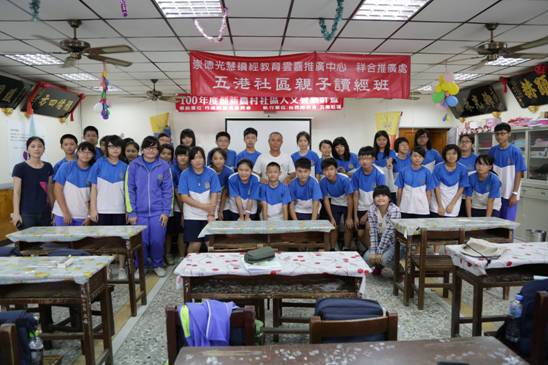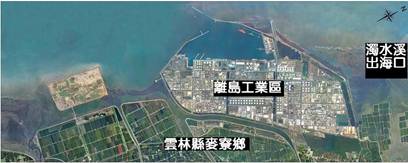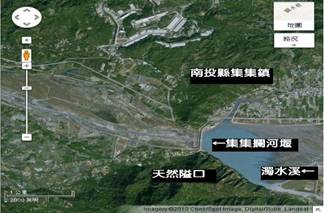| |
|
| |
| |
 |
| |
| Introduction |
| |
| Sixth Naphan Craker and Jiji Weir have the relation of complicated entanglements and coexistence of advantages and disadvantages. From the aspect of economic development, the advantages far outweigh the disadvantages, but from the aspect of agricultural development and ecological environmental protection, the disadvantages outweigh the advantages. This is the main reason for the resistance of some local farmers! |
TOP 
|
 About SNCP About SNCP |
|
|
 Yunlin Offshore Industrial Park Yunlin Offshore Industrial Park
In 1973, Taiwan suffered from the first petroleum crisis, the supply of raw materials of Formosa Plastics Group (FPG) was impacted. In order to ensure the stable supply of raw materials in the midstream and downstream of production line, petitions were repeatedly submitted to the Ministry of Economics Affairs concerning the establishment of petroleum refinery. In 1986, the fourth application passed. For the site selection, as the land problems in Lize (Yilan County), Guanyin (Taoyuan County), and Aogu (Chiayi County) could not be solved, Mailiao (Yunlin County) was finally selected as the factory site.
In the planning of western coastline of Yunlin County, Yunlin Offshore Industrial Park is set up in the form of sea reclamation. The original planning of the industrial area included four districts (Mailiao, Hsinhsing, Taisi, and Sihu) and the Mailiao and Sihu Industrial Ports. It is expected to introduce petrochemical industry, oil refining, steel making, electric power and relevant midstream and downstream industries.
The industrial area has been developed till now. The land in Mailiao has been sold to SNCP, and SNCP is planning to set up factories and begin operation. Hsinhsing is entrusted by the Industrial Development Bureau (MOEA) to RSEA Engineering Corporation for development. To date, 283ha of land reclamation has been completed in the eastern second district. Taisi is developed by the development unit selected by Yunlin County Government, while Sihu area and Sihu Industrial Ports are developed according to the industrial development demand in the future.

Source:Industrial Development Bureau, Ministry of Economic Affairs
 Ji-Ji Conjunctive Diversion Project Ji-Ji Conjunctive Diversion Project
Jiji Weir is set up in Linwei Pass of Jhuoshui River, and is the permanent water retaining structure of Ji-Ji Conjunctive Diversion Project. As the general hub of overall water resource dispatching of Jhuoshui River, it can control reliable water resources of 2 billion m3 annually, and is under the support of the implementation of operation management system and water resource dispatching mechanism, so as to meet the water demand of agricultural, industrial, and domestic use. In brief, Jiji Weir is “to improve the water resource utilization efficiency in Jhuoshui River basin and meet the water use demand of each sector with water resource management as the means and under the support of project execution and flexible and effective dispatching mechanism.”

Source: google map
TOP

 Impact on the weir Impact on the weir |
 Effect on the distribution of farming water in Changhua and Yunlin Effect on the distribution of farming water in Changhua and Yunlin
Because there is a great difference of water volume of Jhuoshui River in the dry season and wet season, in order to stabilize the water for agricultural, domestic, and industrial use in Changhua and Yunlin, the Central Region Water Resources Office sets up a river weir in Linwei Pass of Jhuoshui River Jiji Weir to construct the largest water resource supply system in Taiwan. This system is dispatched by the management center.
Jiji Weir mainly distributes the water resources for agricultural, domestic, and industrial use. The agriculture part mainly supplies the irrigation water for about 100,000 ha of farmland in Changhua County and Yunlin County, accounting for 92% of the water supply, followed by the water supply for Yunlin Offshore Industrial Park, accounting for 6%. Additionally, it supplies the running water in Yunlin County, with a water supply rate of 2%.
 Using ground water for irrigation Using ground water for irrigation
SNCP uses 340,000 MT water everyday, far more than 270,000MT daily domestic water use in Yunlin County. Besides, the water resources for SNCP are from the ground water of Jiji Weir, while the water resource of running water in Yunlin County is the underground water or mixed surface water and underground water. Yunlin County Government criticizes that industry uses drinkable water, but people use underground water. Thus, the government actively fights for the water right of surface water for domestic use.
|
| |
TOP

|
 Advantages and disadvantages of SNCP Advantages and disadvantages of SNCP |
 Positive effects: Positive effects:
1. Promoting industrial development
2. Creating local employment opportunity
3. Developing local traffic development
4.Flourishing urban and rural infrastructure construction
 Negative effects: Negative effects:
1. Environmental dispute
(1) The harmful wastes with pH value more than 12.5 are stacked outdoors in SNCP plant, about 13 stories high.
(2) SNCP uses a large amount of water, amounting to 400,000MT per day (about twice of domestic water use in Yunlin). According to the statistics of Water Resources Agency, SNCP introduces 10% of the water from Jiji Weir and purchases a lot of irrigation water for farmland from Yuilin Irrigation Association. The fight for water by SNCP aggravates the problem of ground subsidence in Yunlin.
(3) About 60% of the products of SNCP are exported, but the total carbon dioxide emission is about 1/4 of the total emission in Taiwan, and the 16,000MT sulfur dioxide and 3340t suspended particles generated every year are the largest pollution source in Taiwan.
(4) The operator follows the fishbone theory. At the beginning of plant construction, the operator reduced the equipment cost to 60% of that of the competitors, and ignored the problem of pipeline rust derived from sea wind in the coastal area. Moreover, most of the pipelines were made of the cheap low-alloy steel, instead of the expensive stainless steel. The obsolete pipeline and use of foreign labors (laws stipulate the quota of foreign labors with the employment of local labors) cause the frequent occupational incidents. 。
2. Health risk
In 2009, Professor Chang-chuan Chan from the Graduate Institute of Public Health, National Taiwan University, published an academic report, pointing out that SNCP is significantly related with cancer, and Yunlin County has became the county with the lowest income but the highest cancer morbidity. In 2013, Professor Chan published another report, indicating that the crude incidence of all cancers within the range 10km away from SNCP in 2008 to 2010 was 4.07 times of that in 1999 to 2001, and the crude incidence of cancer in Taisi and Mailiao was significantly higher than that in Yunlin County. FPG responded that according to the data of Ministry of Health and Welfare, the cancer incidence in various counties and counties in Taiwan presented a rising trend. Take Dacheng Township in Changhua as an example, the cancer incidence increased by 4.5% from 1999 to 2009, lower than the average increasing rate 48.6% in Taiwan. As for the lung cancer which is greatly influenced by the air quality, after the operation of SNCP, the lung cancer incidence increased by 2.5%, also lower than the average increasing rate 52.6% in Taiwan, contradicting there is no scientific evidence to the saying that SNCP causes cancer.
TOP

|
 Thoughts of the residents Thoughts of the residents
|
In order to demonstrate the relevant advantages, disadvantages, gains and losses of constructing SNCP, the research team paid an on-site visit to SNCP in July 2013 and interviewed resident Mr. Lin, about relevant problems of constructing SNCP. The research team sorted the result of interview with Mr. Lin as follows:
Q1: What do the people in Taisi Township Wugang Village live on?
A1: Aquaculture of oyster, which account for 2/3 of the whole Taiwan because they are in the intertidal zone.
Q2: Did any major event occur here because of SNCP?
A2: There was occupational safety events because of the government’s ignorance, the people resisted.
Q3: Did the waste water discharged by SNCP affect your cultivation?
A3: Yes. The improper Ph value affects the survival of organisms, but the organisms will move to the place suitable for them.
Q4: Did the government do anything in response to the pollution caused by SNCP?
A4: SNCP is a self-managed company. When the government wants to investigate the situation, because the personnel in SNCP know clearly their situation, they will try to obstruct the government’s investigation. It’s helpless.
Q5: Will the construction of sea water desalting plant contribute to the pollution?
A5: Of course, but SNCP does not want to spend more money, it is unwilling to construct the plant.
Q6: What hazards will SNCP pollution cause to the human body?
A6: Several hundred toxic substances will harm the human body.
Q7: Does SNCP bring any benefit?
A7: At the very beginning, it claimed that it could create employment opportunity, but actually, if you don’t have “connection”, you would not be able to work there.
TOP

|
 Afterthoughts Afterthoughts |
Our first stop was Dacheng Township in Changhua. The teacher led us to a dike. When we stood on the dike, we smelt an unknown odor! The teacher explained to us that these smells were from the huge SNCP waste pipe. Perhaps people think that SNCP only affect Mailiao Township, they do not know that Dacheng Township in Changhua have also been tortured by the air pollution of SNCP. We had a question, didn’t anyone voice themselves? The teacher said that there were people protesting, but their actions were covered by the noise or smoke of SNCP. Most satirically, in the employee dormitory built by SNCP, an employee facing the door and window said, “Ha, it faces the company, I don’t want to live here!”
SNCP claimed that this industrial area can bring more employment opportunities to Yunlin, but they did not know that the employment opportunities they brought are far less than the population migrated out in these years!
Our second stop was Mailiao Township and we listened to the voice of the villagers. We asked a question, “What’s the impact of SNCP on your cultivation?” The residents said that many incidents of dust polluting fish farm, the cultivation period of oyster was extended and the weight of oyster was far worse than before, making the residents’ life more unstable.
We believe that Taiwan cannot further develop the steel making and petrochemical industries with high water, energy consumption and high pollution by the excuse of “improving self-sufficiency rate”. Can we reflect on the fact that Taiwan is not suitable to develop the industry of high energy and water consumption and high pollution due to limited natural resources? TOP |
|

